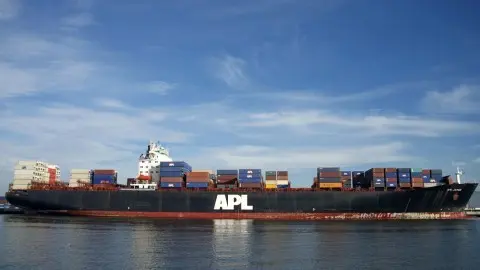China: Patient on US trade tantrum
The direct impact on China from US steel and aluminium tariffs is likely to be minimal
The first round: Little impact on China
The direct impact on China from this first round of US trade tariffs is likely to be small because China has reduced its steel exports significantly, and is not even among the top 10 steel exporters to the US. While China's aluminium exports to the US constitute around 10% of total aluminium exports, the number is still small compared to China's total exports.
To understand why China is not one of the top steel exporters to the US, we need to emphasise that the country has been cutting steel production capacity since 2015. Exports of steel came down from a peak of 11.2 million tonnes in September 2015 to less than five million tonnes in January 2018. In addition, the government has announced further iron and steel production capacity cuts in 2018. That means China would have exported less steel even without US import tariffs.
To this extent, US import tariffs don't hurt China's steel producers
As for aluminium, China's exports to the US are likely to go somewhere else in the world. As other countries' aluminium exporters would also need to find other buyers, China may end up having more supply domestically, which could mean either Chinese aluminium producers produce less or sell at a lower price or both. So the tariff may hurt some Chinese aluminium exporters but the scale of aluminium exports is small compared to China's total exports.
All in all, the direct impact on China is minimal.
The second round: Complicated but China may not be the loser
Some countries will feel the heat from US import tariffs and Europe has already talked about retaliation. Assuming that more countries join Europe, there will be fewer trade flows between the US and the rest of the world.
Would that hurt China? Maybe. When trade flows shrink, US trading partners earn smaller profits, workers earn lower salaries and consumption declines. China's products would also face shrinking export demand. That's likely to be the short-term negative impact on China. But the process may not end there.
Worries about falling profits will lead non-US steel producers to find alternative solutions to boost sales. Producers of final goods that use steel and aluminium in the US would also find other business solutions to avoid the higher cost of steel and aluminium.
These final goods producers could move production from the US to other locations around the world where they could produce at a lower cost, whilst also being closer to their customers, thus allowing them to avoid falling profits. Of course, this would not happen overnight because moving production lines to other countries requires investment and takes time. But this could be an alternative if the US trade wars continue, especially for multinational companies that already have factories outside the US. China, which has a growing consumer market for everything from automobiles to aircraft, could be one such location.
The Chinese government repeated in the 'Two Sessions' (annual meetings for members of the National People's Congress) that China is deregulating its foreign direct investment policies, suggesting that foreigners setting up businesses and factories in China would face fewer hurdles than before.
If there is a third round...
If the US insists on imposing more trade restrictions on the rest of the world, it is inevitable that world growth will slow. That would hurt China as explained. But we don't think China will just take that as given. We believe that the country will see this as a valuable opportunity to try to bring back world growth.
The Belt and Road Initiative (BRI) could be one of the solutions, or even an expanded version of the BRI, including more countries, which facilitates a trade and investment alliance. By that time, there would likely be even more countries willing to join the BRI.
US trade war? Easy for China.
This publication has been prepared by ING solely for information purposes irrespective of a particular user's means, financial situation or investment objectives. The information does not constitute investment recommendation, and nor is it investment, legal or tax advice or an offer or solicitation to purchase or sell any financial instrument. Read more
Download
Download article
7 March 2018
Trade war: What is it good for? This bundle contains 4 Articles
